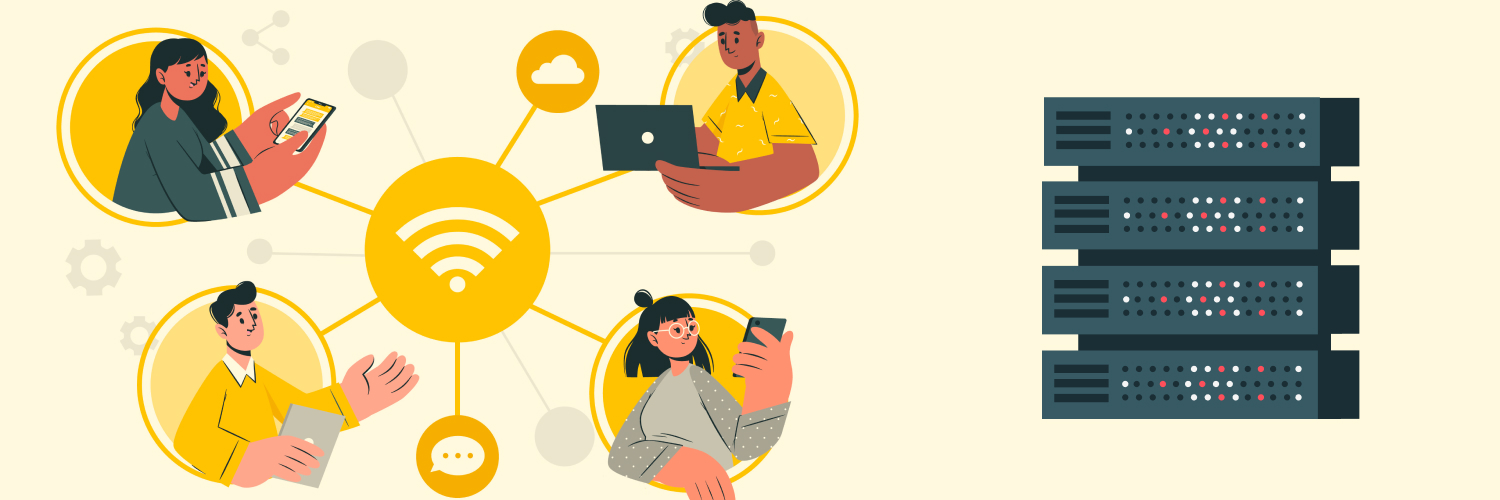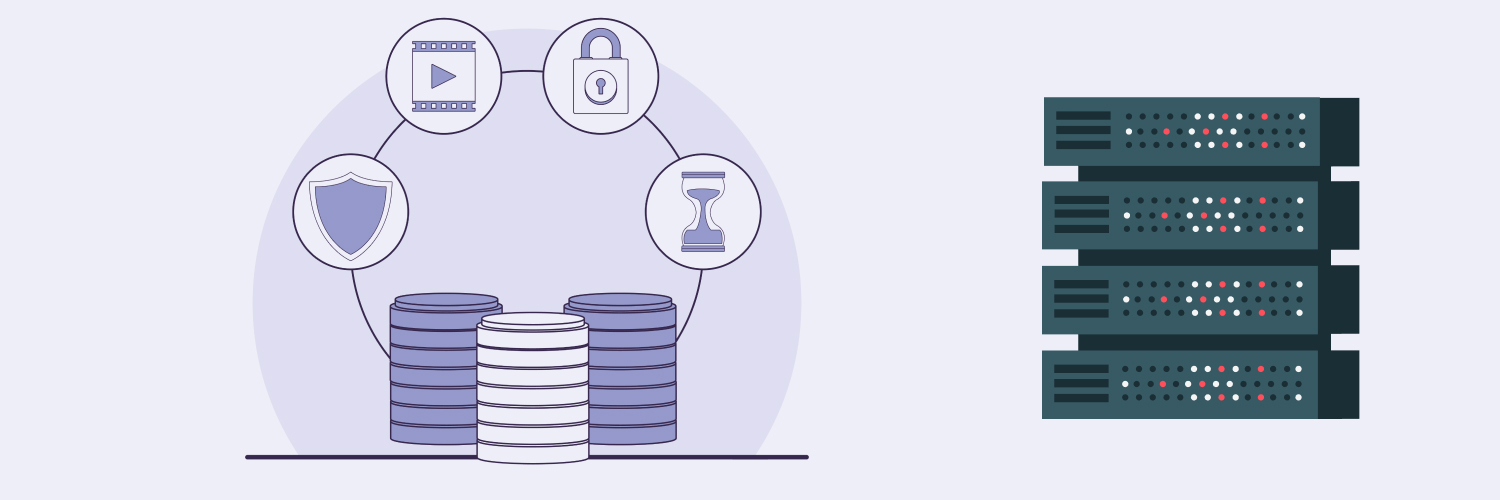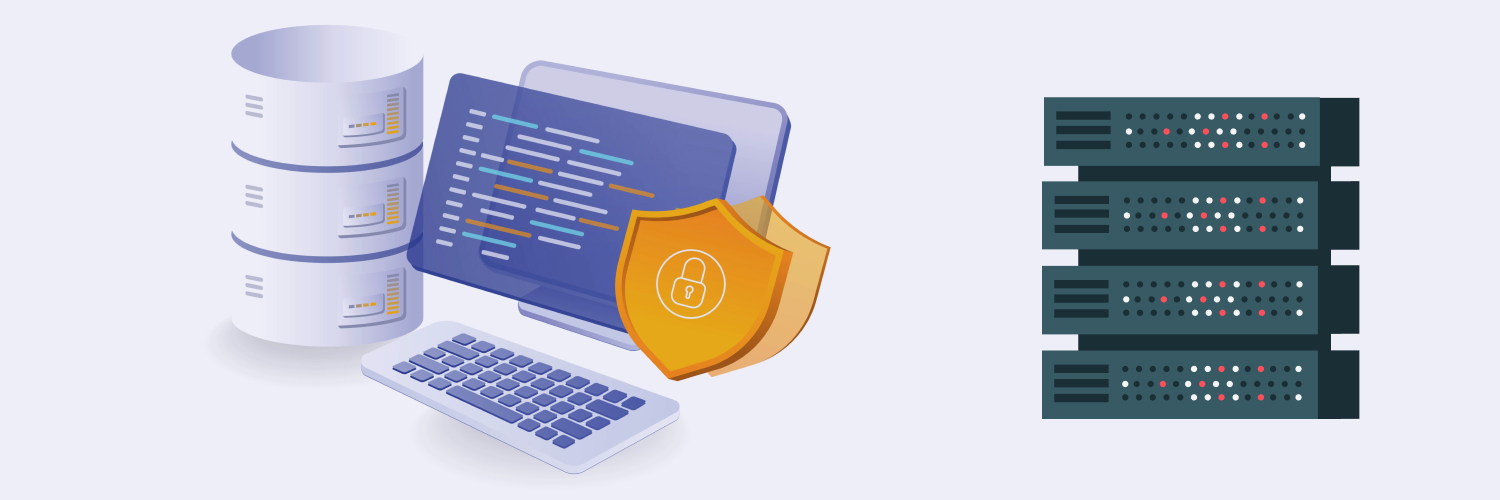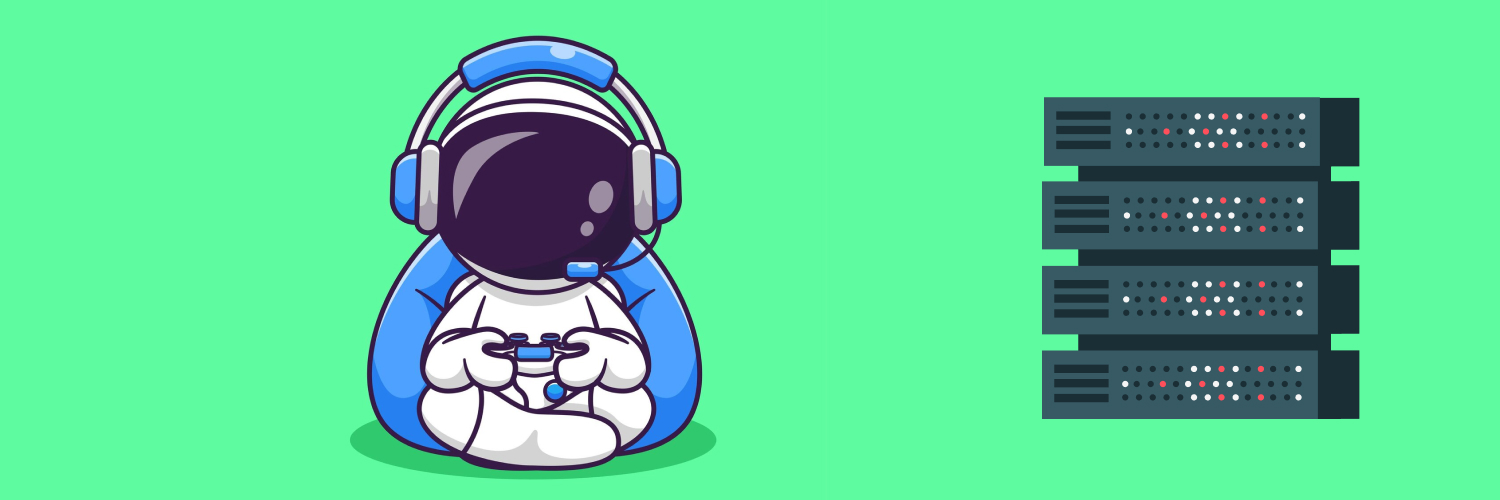What Are Residential Proxies And Why Do You Need Them?
Think about the amount of personal data on any of your devices, such as login IDs and passwords, bank and credit card numbers, and so on. It would be a disaster if a cyber attacker found a way to enter your private network and access all that sensitive information. The resulting fallout could cause countless problems and financial losses and even lead to identity theft.
Protecting sensitive personal information online is more important than ever, and residential proxies are an excellent way to secure your private information. But what are residential proxies? In this post, we will discuss what residential proxies are and what they do. We’ll also cover why you should use them, how to use them, how much they cost, and much more.
What Are Residential Proxies?

A proxy server is a remote computer or server that functions as a gateway between you (the internet user) and the World Wide Web. These intermediary servers provide an added layer of security by acting as a buffer between you and the web pages you visit. There are several different types of proxy servers, but this post will focus on one particular type: residential proxies.
This type of proxy server connects you with the internet by rerouting your web request through an internet protocol address (more commonly known as an IP address) that belongs to a residential internet service provider (or ISP). Other types of proxies use IP addresses that belong to data centers.
“Proxy server” and “proxy IP address” are often used synonymously, but there is a difference:
- A proxy server is a physical computer or device containing the proxy IP addresses.
- A proxy IP address is the specific IP address you use to mask your true IP address.
Misinformation tends to abound about proxy servers and proxy IP addresses, leading some users to question if they should use proxies at all. Our post, 5 Proxy Myths And The Truth Behind Them, clears up some of the most common misconceptions about proxies.
What does a residential proxy do?
Without a proxy, your device uses your private network and IP address to connect to the servers that house the web page you want to access. Those servers then have access to your IP address, geolocation, and often even such information as your browser preferences and the cookies your browser stores.
A residential proxy routes your web request through the proxy’s IP address so that your web traffic appears to be coming from an individual’s home IP address. This allows you to disguise your IP address and protect your personal information by accessing the internet anonymously.
In addition to protecting sensitive data and masking your IP address, using a residential proxy allows you to circumvent content blocks based on geolocation. Some websites allow access to content only to users located in certain countries by blocking traffic from incoming IP addresses that appear to originate from blocked countries. With a residential proxy IP address, you can make your web request appear to come from almost any specific country, allowing you to access the desired content.
How do residential proxies work?
Each time you visit a web page using your normal internet connection, this is what happens:
- Your normal connection sends a server request.
- The server returns the desired result.
If you repeat the same request over and over or use a bot to conduct multiple high-rate requests, the target server may become suspicious of your activity and might even block or ban your connection from accessing the server.
Residential proxies operate using a fairly simple process:
- Your residential proxy routes your internet request through an intermediary server.
- The intermediary server changes the IP address attached to your request before sending it to the requested web page.
- The web page does not receive your actual IP address because your web request appears to be from a completely different but typical internet user.
Rotating residential proxies can help avoid or circumvent IP address blocks, allowing you to conduct several high-rate requests from different IP addresses without risking the target server banning your connection.
What is a residential proxy network?
A residential proxy network is a network of proxies that consist of real IP addresses provided by residential ISPs. Because these IP addresses are attached to physical locations, usually at a country or city level, most websites tend to trust the traffic from these IP addresses.
Why should I use a residential proxy?
You know what a residential proxy is, so what are residential proxies used for, and why?
There are a wide variety of benefits to using a residential proxy to access the internet:
- A residential proxy allows you to mask your true IP address, concealing your identity and internet browsing activity. They also help protect your sensitive personal information, including browsing history and stored cookies.
- Residential proxies are the most reliable proxy connections.
- Residential proxies improve web browsing speed. They typically provide faster connection speeds than shared proxies or virtual private networks (VPNs).
- You can use residential proxies whenever you want your connection requests to appear to come from another location or a different internet user. You are not limited to U.S. residential proxies. In fact, with Rayobyte’s residential proxies, you can target any country, state, or city at no additional cost.
- You can use a residential proxy to browse the internet, play online games, access your banking and other financial information, and shop online in privacy.
- Target websites are much less likely to block residential proxies than other types of proxies. Since residential proxies use IP addresses attached to regular internet users instead of data centers, these requests appear more human and less bot-like.
A business can use a residential proxy to assist with:
- Ad verification
- Web scraping and public data collection
- Market price monitoring and aggregation
- SEO monitoring
- Lead generation
- Business automation
- Network penetration testing
- Managing multiple social media accounts from different locations
For more information about what proxies are, how they work, and why you should use them, you can download Rayobyte’s informative eBook, Proxies 101.
What Is a Residential Proxy IP Address?

Any physical device that accesses the internet, such as a mobile phone, laptop, or desktop computer, has a public IP address. A residential IP address is an online address that an ISP has assigned to a single owner or residential household in a specific geographical area. When a request to access a website comes from a residential IP address, it appears to the target website to be initiated by a regular internet user, which means your request is much more likely to get through.
Other proxies, like data center proxies, are generally connected to a cloud service provider and assigned to a data center. Data center IPs still mask the user’s true IP address, but many websites will block traffic if it appears to come from a data center since cybercriminals often use these IPs to conduct malicious activity.
How can I get a residential IP address?
If you are accessing the internet through your home internet connection, your ISP has most likely already assigned a residential IP address to your connection. But maybe you wish to access the internet without sharing your real IP address with the websites you visit, or perhaps you are accessing the internet from your business office.
To obtain a residential IP address in either of those scenarios, you can pay to access a residential proxy from a reliable, reputable proxy service provider, such as Rayobyte.
What are static residential proxies?
Depending on your residential proxy provider and what type of proxy service you use, your internet traffic comes from either a single residential IP address or a cycling series of different IP addresses.
When your proxy links you to a single residential IP address with the intention of masking your real IP address, this is known as a static proxy (or a “sticky proxy”). With a static proxy, your assigned IP address “sticks” with you throughout the duration of your connection to a web page, which means your IP address remains the same for the entirety of your session. The fixed duration of this “sticky session” can range in length, but usually anywhere from five to 30 minutes.
Static residential proxies offer several advantages. Because they provide a constant connection, they boast a higher connection speed, a lower price, and somewhat increased stability over the alternative, which is rotating residential proxies. Static proxies also more closely mimic the behavior of a real internet user in the eyes of some web page servers.
However, if you choose to buy static residential proxies, you should be aware that they are less customizable than rotating proxies, and they are also easier for target websites to detect and identify as proxies. Also, if you exceed a certain number of requests from the same IP address during an allotted time frame, websites may ban you due to bot-like activity.
What are rotating residential proxies?
Rotating residential proxies, also known as “backconnect proxies,” behave the opposite of static proxies. While a static proxy IP address “sticks” with you for your entire website session, a rotating proxy instead cycles through a series of different residential IP addresses throughout your browsing session, causing your IP address to change periodically. This means you can send as many requests or have as many concurrent sessions as you wish while still avoiding being banned due to suspicious or bot-like activity.
Rotating proxies are more customizable than static proxies. This is because they can make a user appear to be physically located in various places and send requests from multiple IP addresses. This can provide you with access to some geo-specific data and content that you may not be able to access with a static proxy.
Rotating proxies can send a large number of requests at one time, which means they are more useful than static proxies at gathering data on a large scale, such as the kind of data collection performed during a web scraping operation. Rotating residential proxies are also less detectable as proxies by target websites than static residential proxies because most rotating proxies originate from residential ISPs. A rotating IP address can also be replaced with a completely different one if a target website bans the first. This differs from a static IP address, which cannot be changed as easily.
Are U.S. Residential Proxies Safe?

You do get what you pay for when it comes to proxies. The safety of the proxy you use depends on your chosen proxy provider. Free proxies, unreliable proxies, or unethical proxy providers can cause you and your online safety far more trouble than they are worth.
Public proxies and free proxies can be especially problematic because any user on the internet can connect to them. Unlimited users drawing upon a proxy’s limited resources can lead to incredibly slow internet connections. Worse still, using shared proxies means that other users may be able to gain access to your IP address and other sensitive information, exposing you to the possibility of falling prey to a cyberattack.
A reliable, ethical proxy provider will provide you access to safe, legitimately-sourced residential proxy IP addresses linked to reliable ISPs, protecting the privacy and security of your sensitive data. The safest proxies are semi-dedicated, dedicated, or rotating.
Are residential proxies legal?
The use of residential proxies is absolutely legitimate and completely legal in the United States. Of course, this statement has an obvious caveat: You cannot use residential proxies to perform illegal activities, and they won’t keep you from getting caught. Even if you use a proxy to mask your IP address, law enforcement can most likely trace any illegal activity back to you.
It is legal to use residential proxies to scrape content from a public website but illegal to scrape content from a private website. In other words, your web scraper should not log into a website and then collect data from within that login session.
You must always ensure that you do not use the data you collect through web scraping in any way that could breach laws that may be applicable to that content. One example is downloading copyrighted data, which can include videos, music, articles, art, designs, and even website layouts — anything that could be considered creative work.
Are residential proxies ethical?
Companies that provide residential proxy services frequently claim they do so ethically, although independent investigations have proven that many of these claims are false. Rayobyte is trying to set the gold standard for the ethical sourcing of residential proxies. We acquire our residential IPs by:
- Purchasing and reselling residential IPs from the best residential proxy providers, who we ensure share our ethical and legal values
- Paying residential internet users directly to allow us to use their device’s IP address as a proxy
We acquire these residential IPs with the owner’s full, intentional, and informed consent, which they can then revoke at any time. These internet users can also limit the conditions in which we may use their connections as proxies.
Our software also provides safeguards to ensure the individual user’s device is only used as a proxy if and when it meets all three of the following conditions:
- The user’s device is connected to Wi-Fi.
- The user is not actively using their device at the time.
- The user’s device is charged at least 50% or plugged in.
Once we purchase these residential IP addresses, we also take additional steps to ensure our ongoing commitment to ethical proxy use.
Vetting residential customers
We do not sell residential IP addresses directly to our customers. Instead, we ensure anyone who purchases residential IP addresses from Rayobyte must do the following:
- Provide a demonstration of their product that proves that their business use case is legitimate and meets our ethical standards.
- Go through a rigorous “know your customer” vetting process, during which they must provide us with additional information about their business and business activities.
Monitoring customer usage
Our proprietary monitoring system oversees the usage of our residential IP addresses. This allows us to ensure that our residential proxy customers are continually meeting our legal and ethical standards. Customers who use our residential IPs must use them for one of our verified use cases.
Maintaining total privacy compliance
We do not collect data or personal information from users who consent to the use of their device as a residential proxy, just the user’s IP address. We also comply with all legal statutes governing data protection, including the General Data Protection Regulation (GDPR) and the California Consumer Privacy Act of 2018, among others.
How much do residential proxies cost?
Because of their increased reliability, better performance, and improved IP masking, it is not easy to gain access to residential proxies cheaply. Residential proxies often come at a significantly higher cost when compared to data center proxies. However, most residential proxy users will find the payoff worth the additional cost.
What are residential proxies worth? At Rayobyte, we offer a number of reasonable pricing tiers for our residential proxies. Prices begin at $15 per gigabyte (GB) for bandwidth up to 15 GB. The more bandwidth you purchase, the lower the cost per GB: Our Enterprise tier costs $3 per GB for up to 4.9 terabytes. We also offer a custom package featuring unlimited bandwidth residential proxies for $1 per GB.
Free trials are also available for those interested in trying our residential proxies.
How To Use Residential Proxies for Web Scraping Applications

Web scraping, also known as web data extraction, is the practice of collecting a large amount of unstructured data from public web pages and saving that data in a usable, readable format.
It can be difficult to accomplish your web scraping goals without proxies. Rotating residential proxies are an ideal solution for several reasons:
- Using residential proxies allows your web scraping activity to appear humanlike and less like a bot in the eyes of your target websites.
- Because residential proxies resemble actual internet users, they are difficult to detect, block, or ban during web scraping activities because websites rarely block typical users.
- Rotating residential proxies allow you to exceed request limits without being flagged as a possible bot. Any time the target website becomes suspicious of one of your IP addresses, you can swap it out for a fresh one.
- Using rotating residential proxies, you can collect geo-restricted data by making your scraping request appear to come from an allowed or accepted region.
- Rayobyte’s residential proxies, which we offer in more than 130 global locations, support both HTTP and HTTP(s) protocols.
Final Thoughts

What are residential proxies? You likely have a much more solid understanding than when you started. Residential proxies have a wide variety of uses, and they may be the best choice to meet your proxy needs.
Rayobyte is an award-winning proxy provider with a strong commitment to ethics, legality, and reliability. Our ethical residential proxies can help you meet all of your data collection goals. Click here to start using residential proxies with a 50 MB free Rayobyte trial today.
The information contained within this article, including information posted by official staff, guest-submitted material, message board postings, or other third-party material is presented solely for the purposes of education and furtherance of the knowledge of the reader. All trademarks used in this publication are hereby acknowledged as the property of their respective owners.






